Why
I’m running a ZFS pool of 4 external USB drives. It’s a mix of WD Elements and enclosed IronWolfs. I’m looking to consolidate it into a single box since I’m likely to add another 4 drives to it in the near future and dealing with 8 external drives could become a bit problematic in a few ways.
ZFS with USB drives
There’s been recurrent questions about ZFS with USB. Does it work? How does it work? Is it recommended and so on. The answer is complicated but it revolves around - yes it works and it can work well so long as you ensure that anything on your USB path is good. And that’s difficult since it’s not generally known what USB-SATA bridge chipset an external USB drive has, whether it’s got firmware bugs, whether it requires quirks, is it stable under sustained load etc. Then that difficulty is multiplied by the number of drives the system has. In my setup for example, I’ve swapped multiple enclosure models till I stumbled on a rock-solid one. I’ve also had to install heatsinks on the ASM1351 USB-SATA bridge ICs in the WD Elements drives to stop them from overheating and dropping dead under heavy load. With this in mind, if a multi-bay unit like the OWC Mercury Elite Pro Quad proves to be as reliable as some anecdotes say, it could become a go-to recommendation for USB DAS that eliminates a lot of those variables, leaving just the host side since it comes with a cable too. And the host side tends to be reliable since it’s typically either Intel or AMD. Read ##Testing for some tidbits about AMD.
Initial observations of the OWC Mercury Elite Pro Quad
- Built like a tank, heavy enclosure, feet screwed-in not glued
- Well designed for airflow. Air enters the front, goes through the disks, PSU, main PCB and exits from the back. Some IronWolf that averaged 55°C in individual enclosures clock at 43°C in here
- It’s got a Good Quality DC Fan (check pics). So far it’s pretty quiet
- Uses 4x ASM235CM USB-SATA bridge ICs which are found in other well-regarded USB enclosures. It’s newer than the ASM1351 which is also reliable when not overheating
- The USB-SATA bridges are wired to a USB 3.1 Gen 2 hub - VLI-822. No SATA port multipliers
- The USB hub is heatsinked
- The ASM235CM ICs have a weird thick thermal pad attached to them but without any metal attached to it. It appears they’re serving as heatsinks themselves which might be enough for the ICs to stay within working temps
- The main PCB is all-solid-cap affair
- The PSU shows electrolytic caps which is unsurprising
- The main PCB is connected to the PSU via standard molex connectors like the ones found in ATX PSUs. Therefore if the built-in PSU dies, it could be replaced with an ATX PSU
- It appears to rename the drives to its own “Elite Pro Quad A/B/C/D” naming, however
hdparm -I /dev/sdaseems to return the original drive information. The disks appear with their internal designations in GNOME Disks. The kernel maps them in/dev/disks/by-id/*according to those as before. I moved my drives in it, rebooted and ZFS started the pool as if nothing happened - SMART info is visible in GNOME Disks as well as
smartctl -x /dev/sda - It comes with both USB-C to USB-C cable and USB-C to USB A
- Made in Taiwan
Testing
- No errors in the system logs so far
- I’m able to pull 350-370MB/s sequential from my 4-disk RAIDz1
- Loading the 4 disks together with
hdparmresults in about 400MB/s total bandwidth - It’s hooked up via USB 3.1 Gen 1 on a B350 motherboard. I don’t see a significant difference in the observed speeds whether it’s on the chipset-provided USB host, or the CPU-provided one
- Completed a manual scrub of a 24TB RAIDz1 while also being loaded with an Immich backup, Plex usage, Syncthing rescans and some other services. No errors in the system log. Drives stayed under 44°C. Stability looks promising
- Will pull a drive and add a new one to resilver once the latest changes get to the off-site backup
- Pulled a drive from the pool and replaced it with a spare while the pool was live. SATA hot plugging seems to work. Resilvered 5.25TB in about 32 hours while the pool was in use. Found the following vomit in the logs repeating every few minutes:
Apr 01 00:31:08 host kernel: scsi host11: uas_eh_device_reset_handler start
Apr 01 00:31:08 host kernel: usb 6-3.4: reset SuperSpeed USB device number 12 using xhci_hcd
Apr 01 00:31:08 host kernel: scsi host11: uas_eh_device_reset_handler success
Apr 01 00:32:42 host kernel: scsi host11: uas_eh_device_reset_handler start
Apr 01 00:32:42 host kernel: usb 6-3.4: reset SuperSpeed USB device number 12 using xhci_hcd
Apr 01 00:32:42 host kernel: scsi host11: uas_eh_device_reset_handler success
Apr 01 00:33:54 host kernel: scsi host11: uas_eh_device_reset_handler start
Apr 01 00:33:54 host kernel: usb 6-3.4: reset SuperSpeed USB device number 12 using xhci_hcd
Apr 01 00:33:54 host kernel: scsi host11: uas_eh_device_reset_handler success
Apr 01 00:35:07 host kernel: scsi host11: uas_eh_device_reset_handler start
Apr 01 00:35:07 host kernel: usb 6-3.4: reset SuperSpeed USB device number 12 using xhci_hcd
Apr 01 00:35:07 host kernel: scsi host11: uas_eh_device_reset_handler success
Apr 01 00:36:38 host kernel: scsi host11: uas_eh_device_reset_handler start
Apr 01 00:36:38 host kernel: usb 6-3.4: reset SuperSpeed USB device number 12 using xhci_hcd
Apr 01 00:36:38 host kernel: scsi host11: uas_eh_device_reset_handler success
It appears to be only related to the drive being resilvered. I did not observe resilver errors
- Resilvering
iostatshows numbers in-line with the 500MB/s of the the USB 3.1 Gen 1 port it’s connected to:
tps kB_read/s kB_wrtn/s kB_dscd/s kB_read kB_wrtn kB_dscd Device
314.60 119.9M 95.2k 0.0k 599.4M 476.0k 0.0k sda
264.00 119.2M 92.0k 0.0k 595.9M 460.0k 0.0k sdb
411.00 119.9M 96.0k 0.0k 599.7M 480.0k 0.0k sdc
459.40 0.0k 120.0M 0.0k 0.0k 600.0M 0.0k sdd
- Running a second resilver on a chipset-provided USB 3.1 port while looking for USB resets like previously seen in the logs. The hypothesis is that here’s instability with the CPU-provided USB 3.1 ports as there have been documented problems with those
- I had the new drive disconnect upon KVM switch, where the KVM is connected to the same same chipset-provided USB controller. Moved the KVM to the CPU-provided controller. This is getting fun
- Got the same resets as the drive began the sequential write phase:
Apr 02 16:13:47 host kernel: scsi host11: uas_eh_device_reset_handler start
Apr 02 16:13:47 host kernel: usb 6-2.4: reset SuperSpeed USB device number 9 using xhci_hcd
Apr 02 16:13:47 host kernel: scsi host11: uas_eh_device_reset_handler success
- 🤦 It appears that I read the manual wrong. All the 3.1 Gen 1 ports on the back IO are CPU-provided. Moving to a chipset-provided port for real and retesting… The resilver entered its sequential write phase and there’s been no resets so far. The peak speeds are a tad higher too:
tps kB_read/s kB_wrtn/s kB_dscd/s kB_read kB_wrtn kB_dscd Device
281.80 130.7M 63.2k 0.0k 653.6M 316.0k 0.0k sda
273.00 130.1M 56.8k 0.0k 650.7M 284.0k 0.0k sdb
353.60 130.8M 63.2k 0.0k 654.0M 316.0k 0.0k sdc
546.00 0.0k 133.2M 0.0k 0.0k 665.8M 0.0k sdd
- Resilver finished. No resets or errors in the system logs
- Did a second resilver. Finished without errors again
- Resilver while connected to the chipset-provided USB port takes around 18 hours for the same disk that took over 30 hours via the CPU-provided port
Verdict so far
The OWC passed all of the testing so far with flying colors. Even though resilver finished successfully, there were silent USB resets in the logs with the OWC connected to CPU-provided ports. Multiple ports exhibited the same behavior. When connected to a B350 chipset-provided port on the other hand the OWC finished two resilvers with no resets and faster, 18 hours vs 32 hours. My hypothesis is that these silent resers are likely related to the known USB problems with Ryzen CPUs. The OWC itself passed testing with flying colors when connected to a chipset port.
I’m buying another one for the new disks.
Pics
General
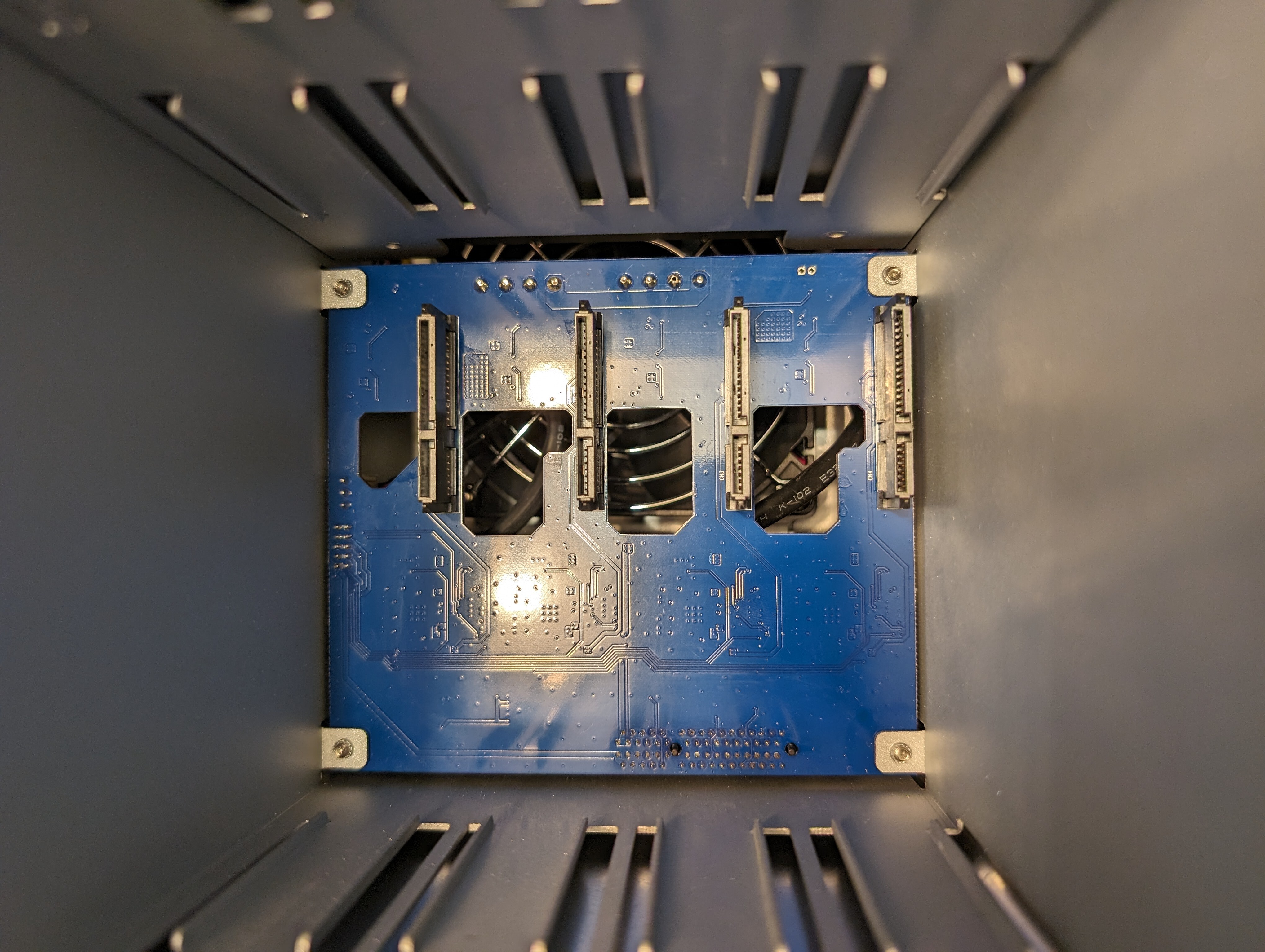
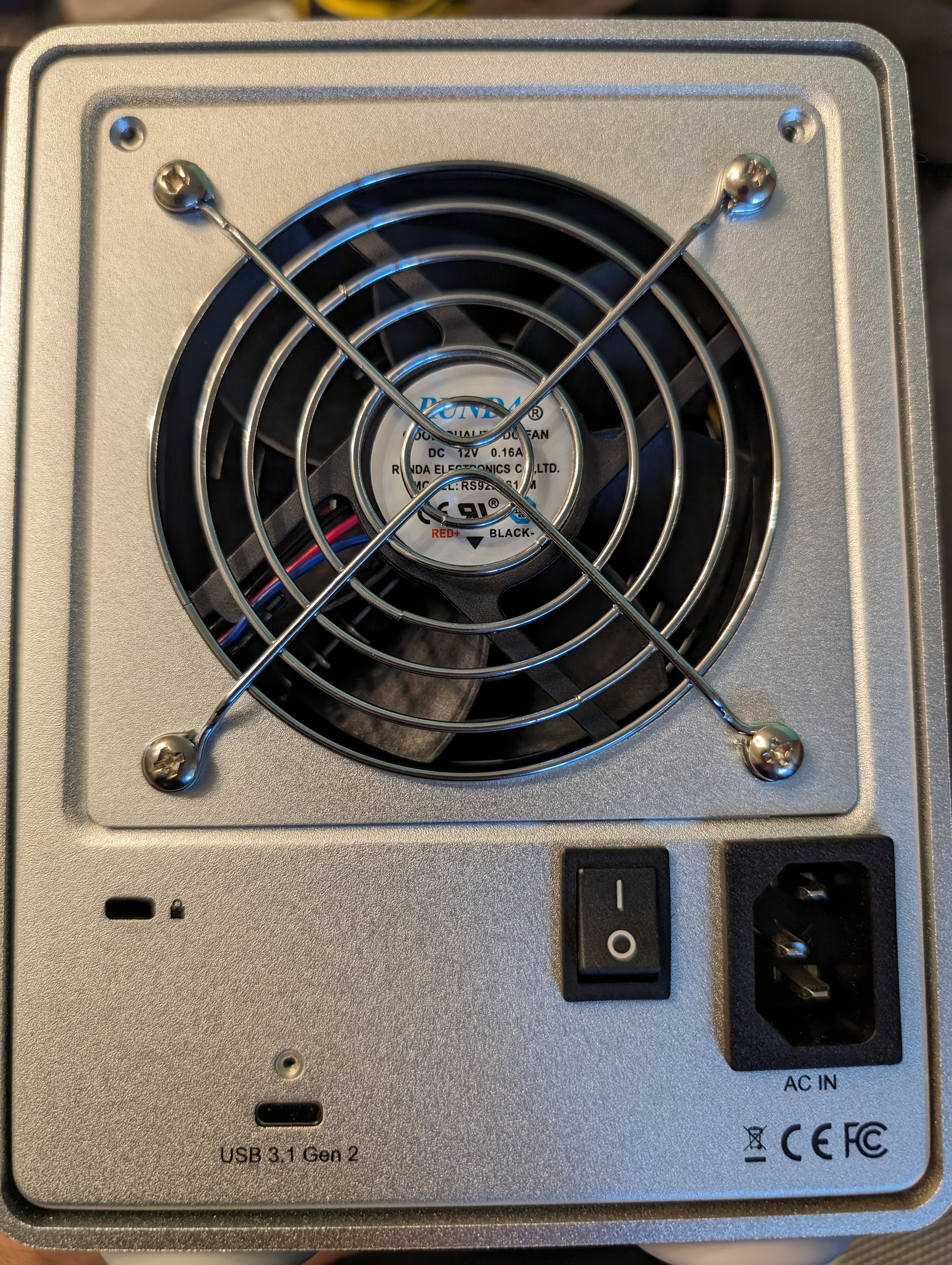
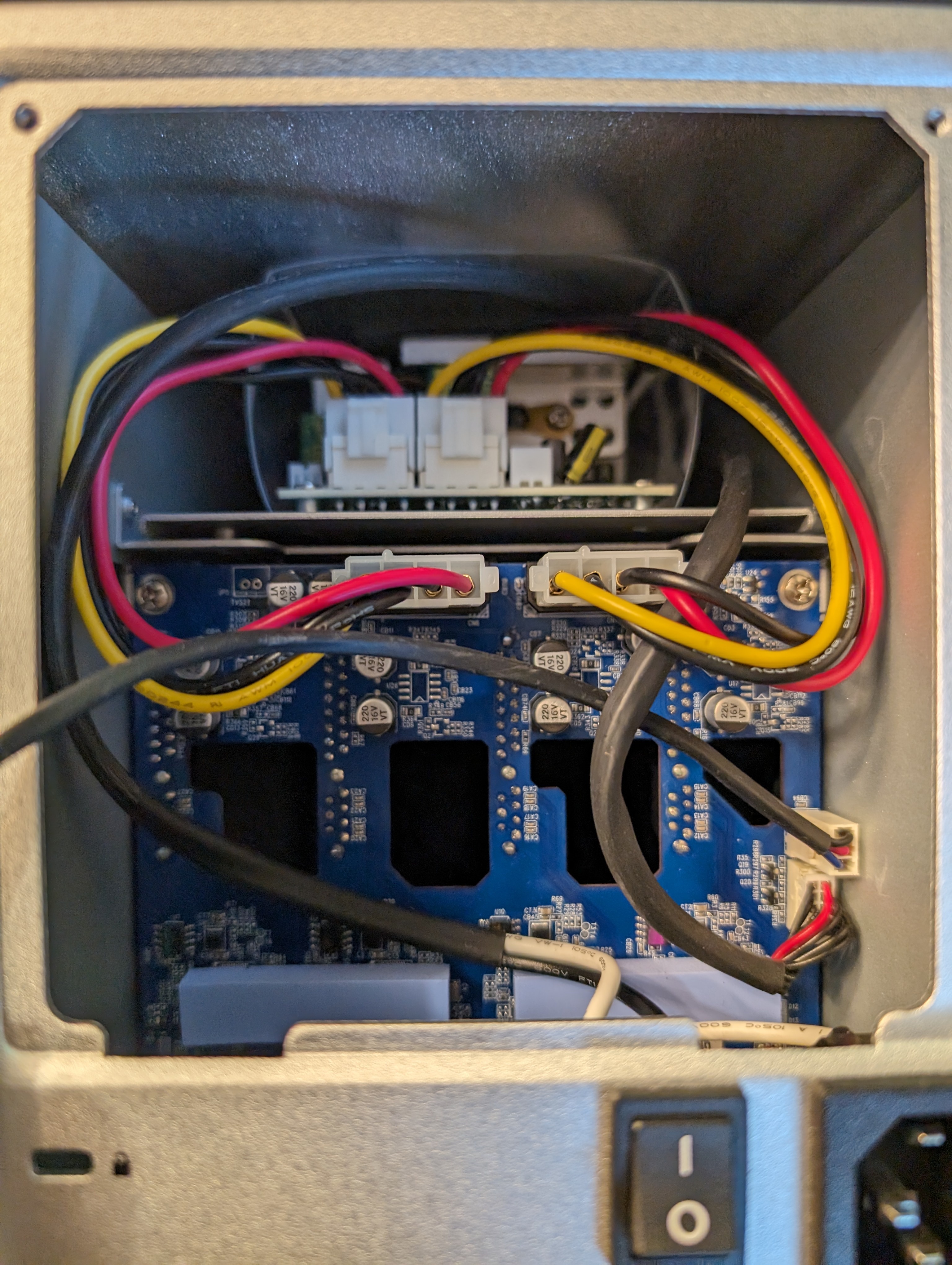
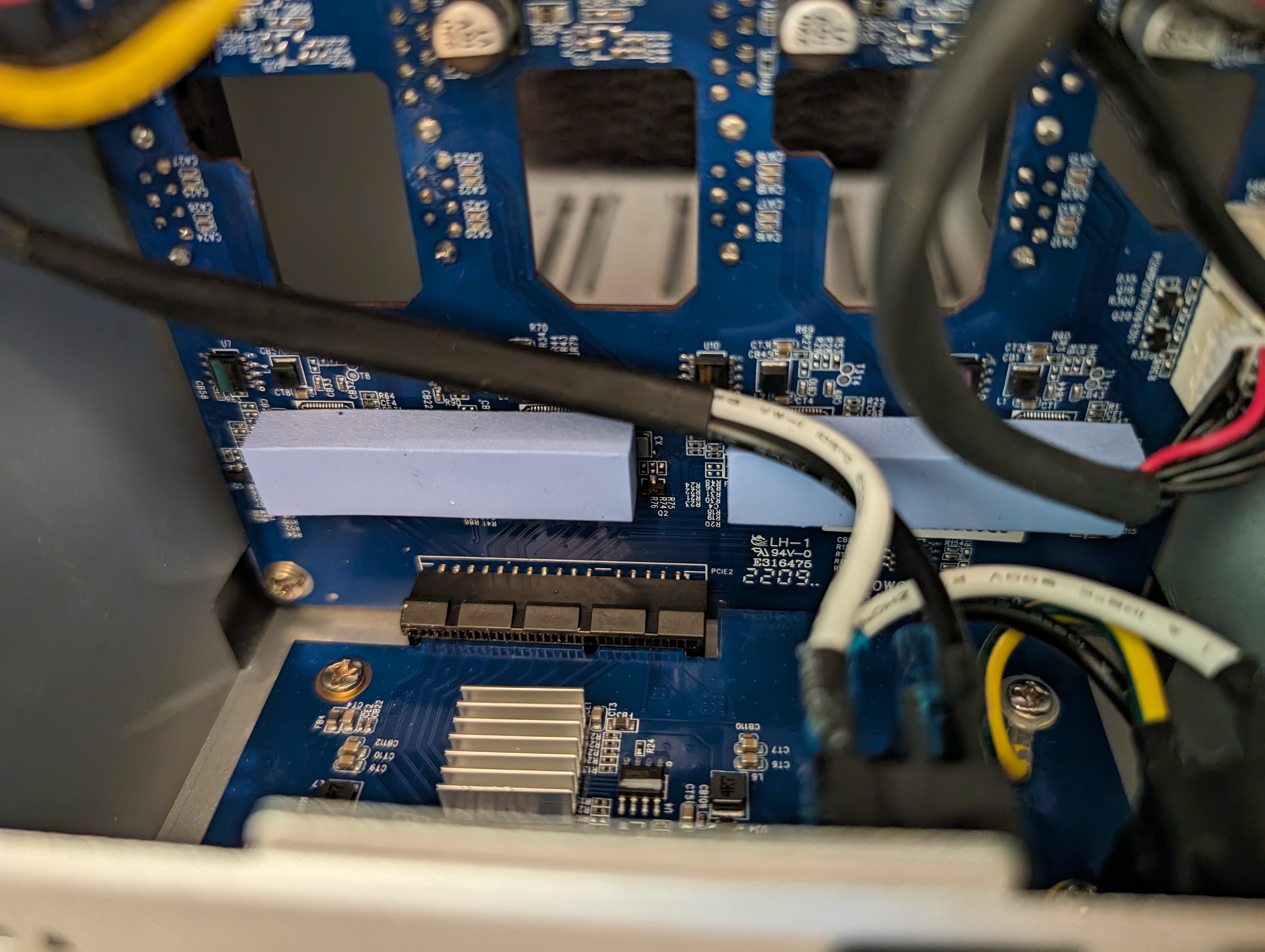
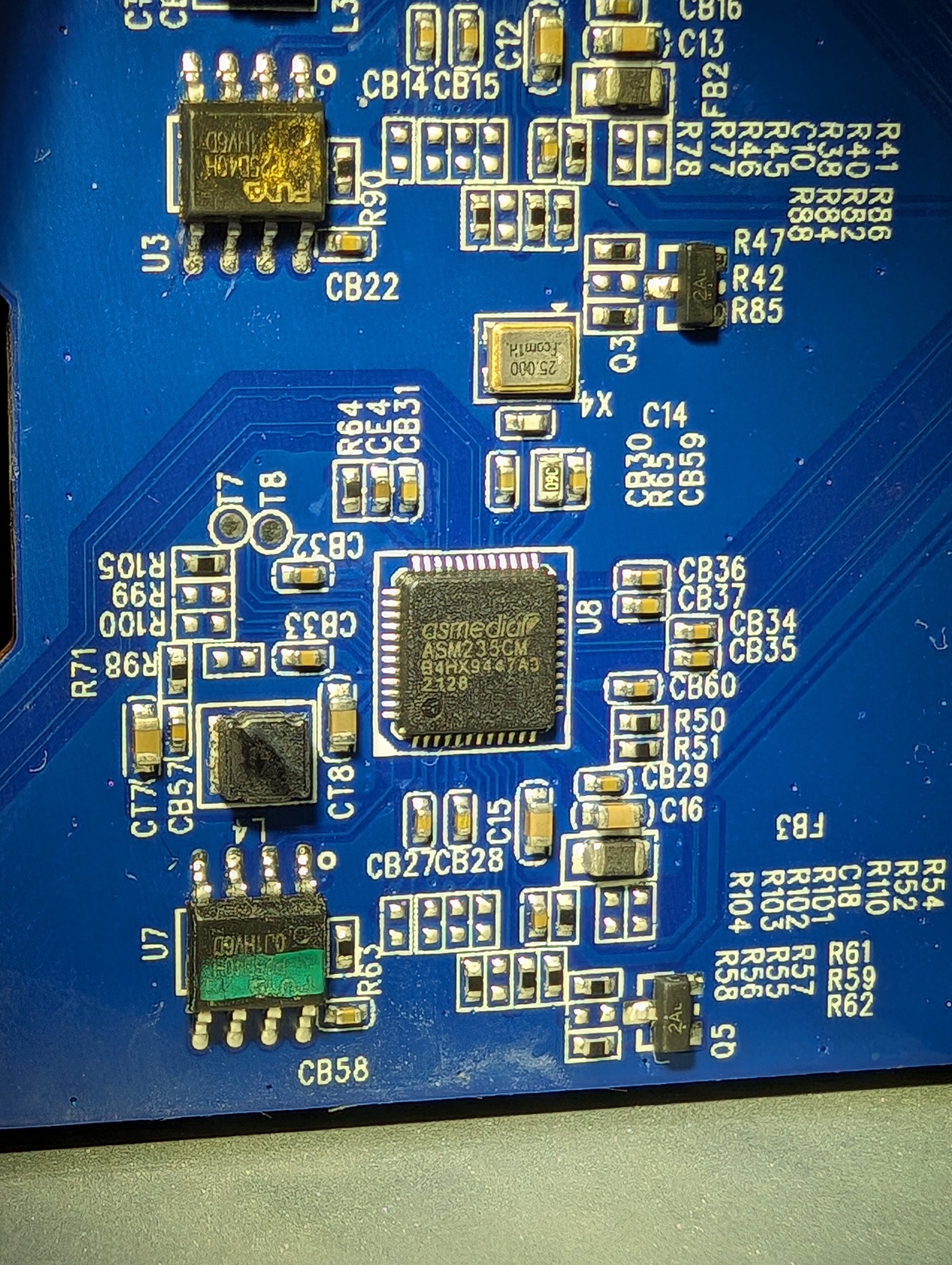
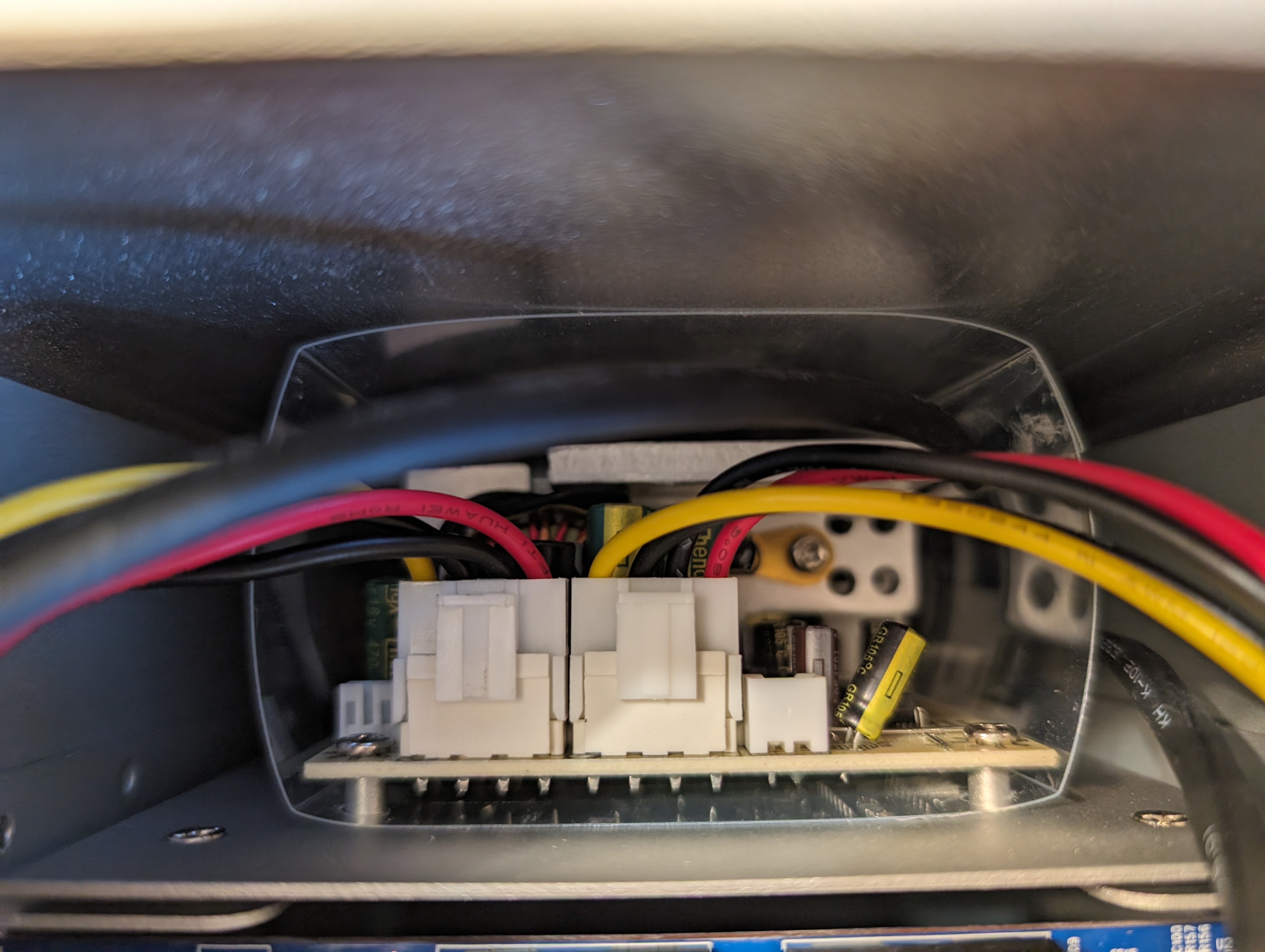
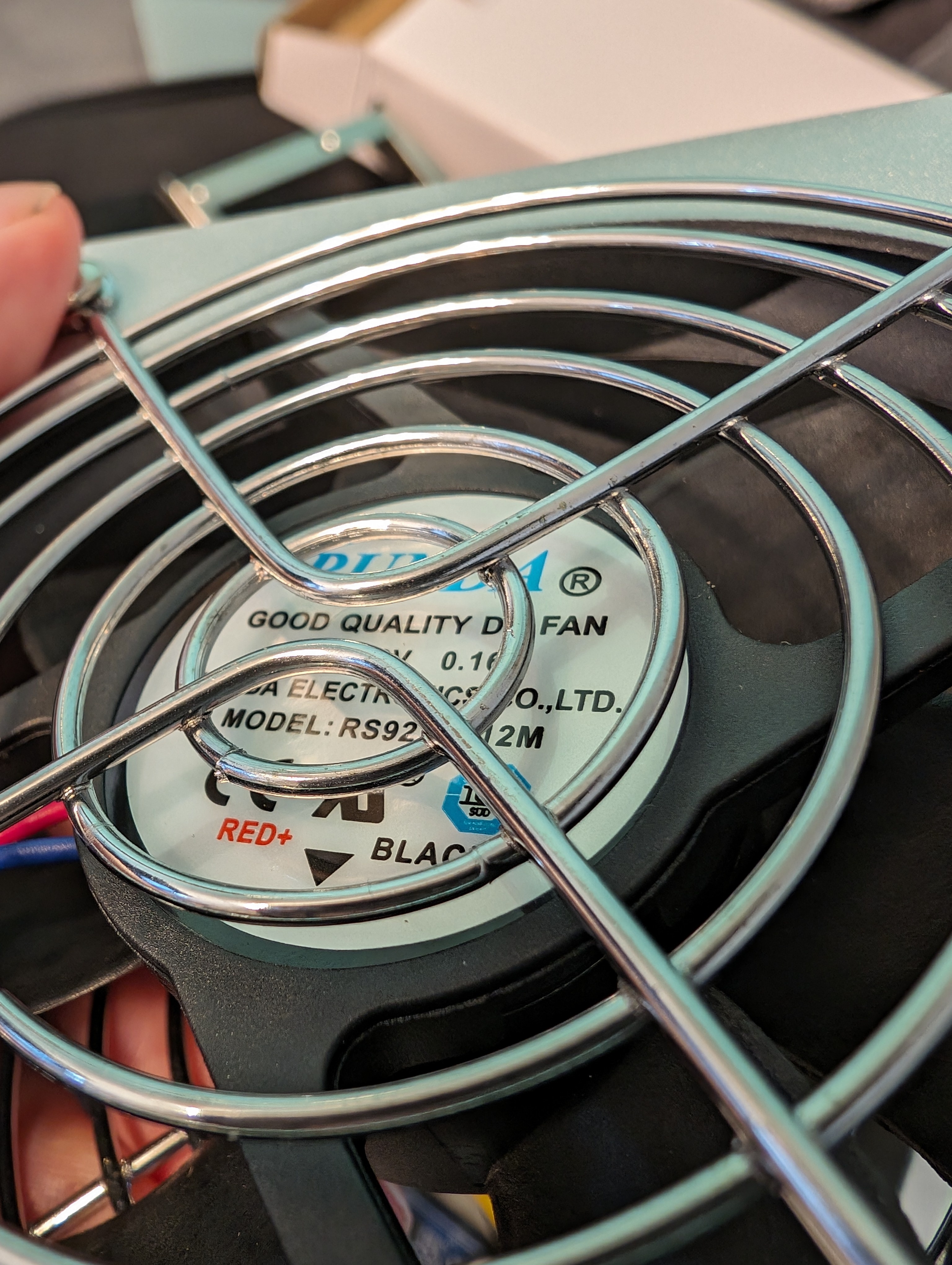
PSU
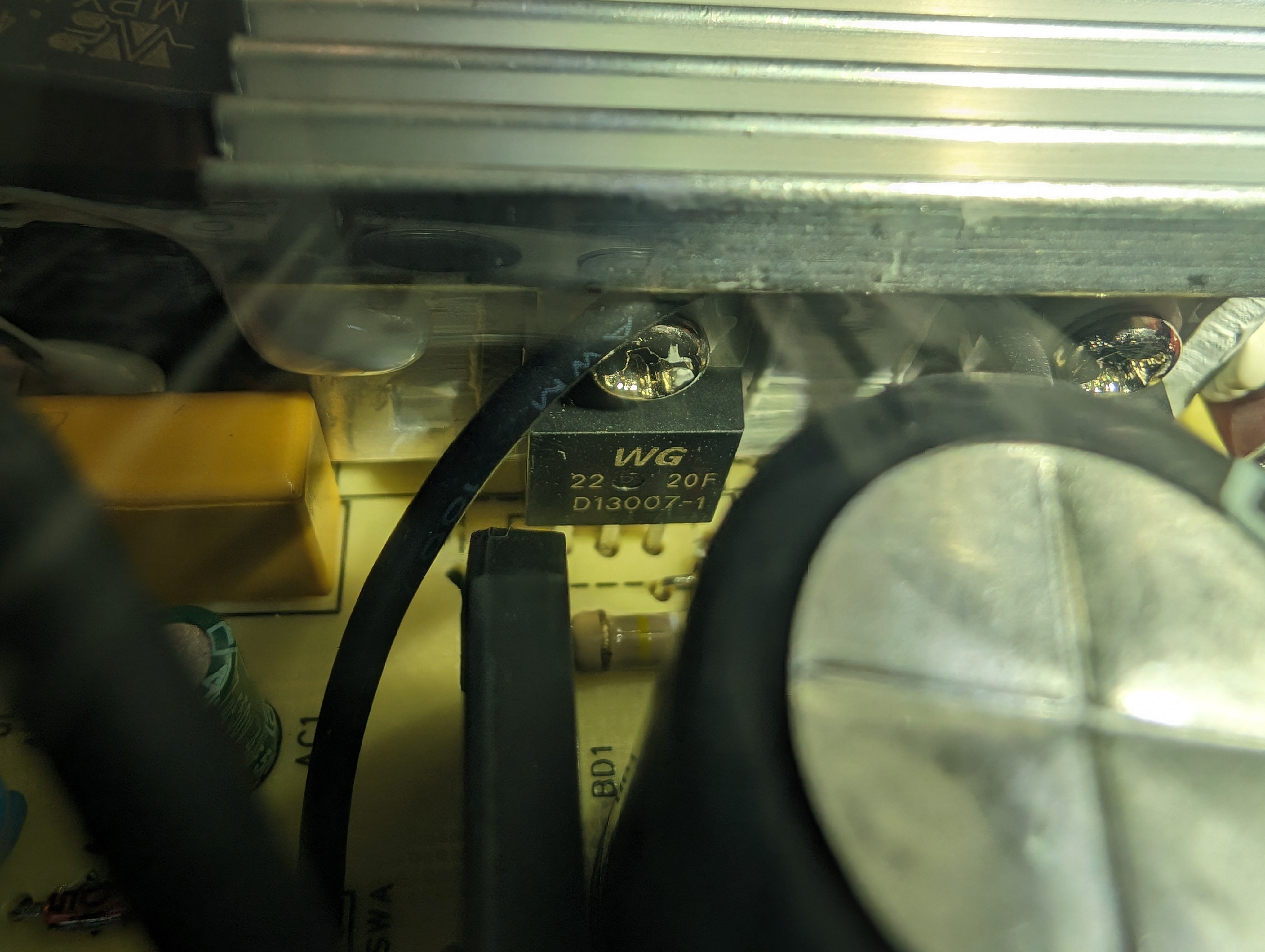
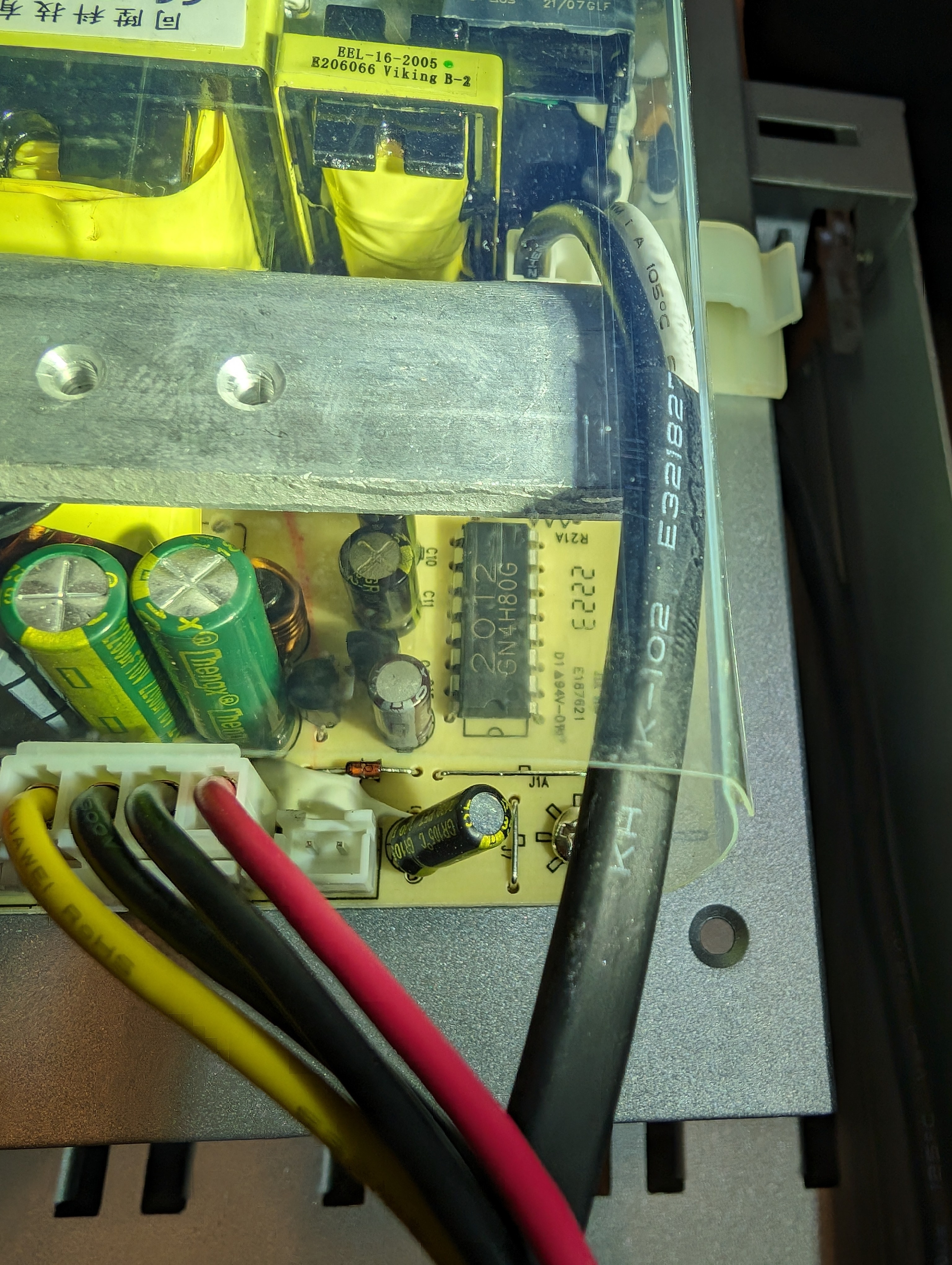
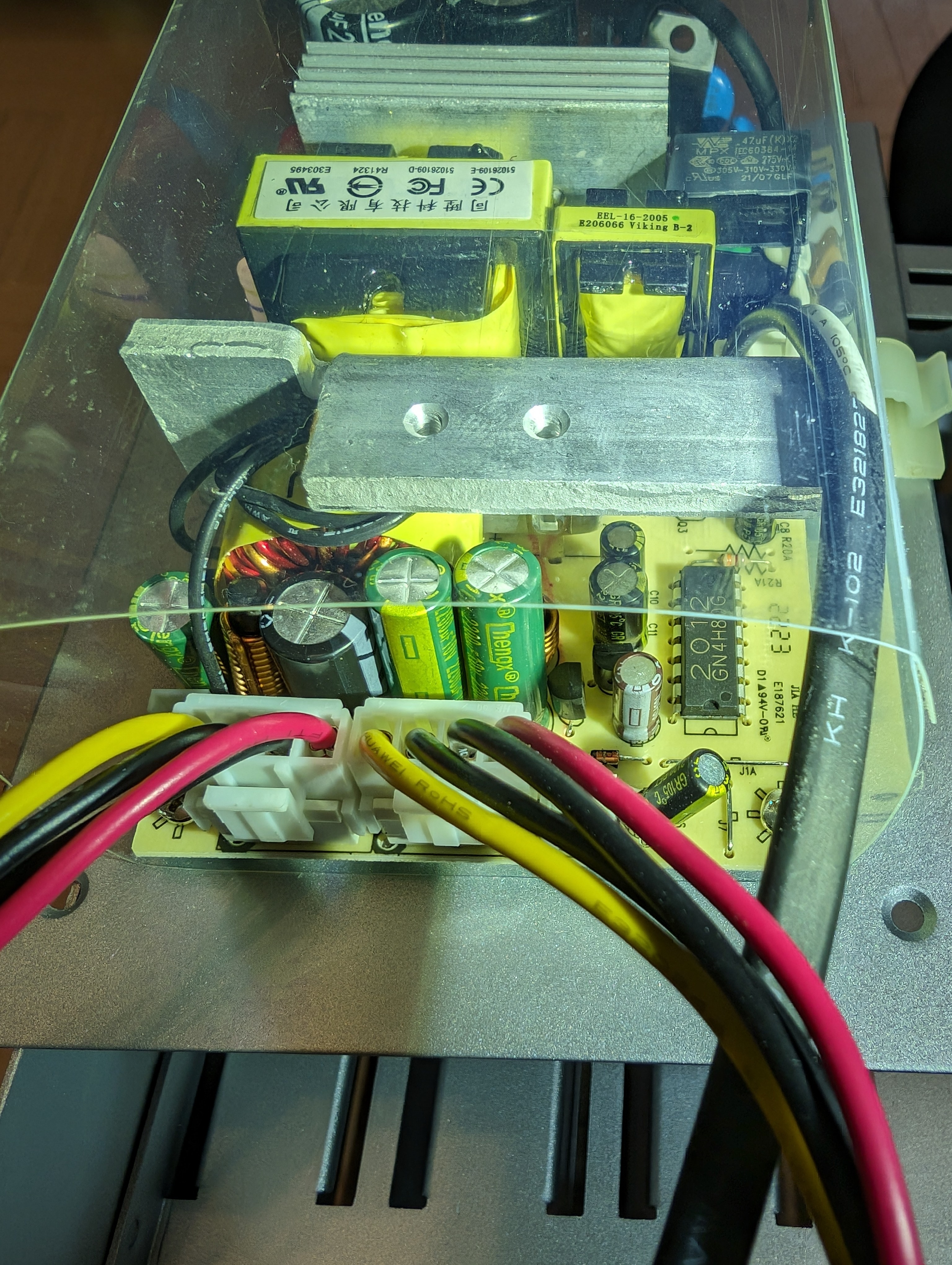
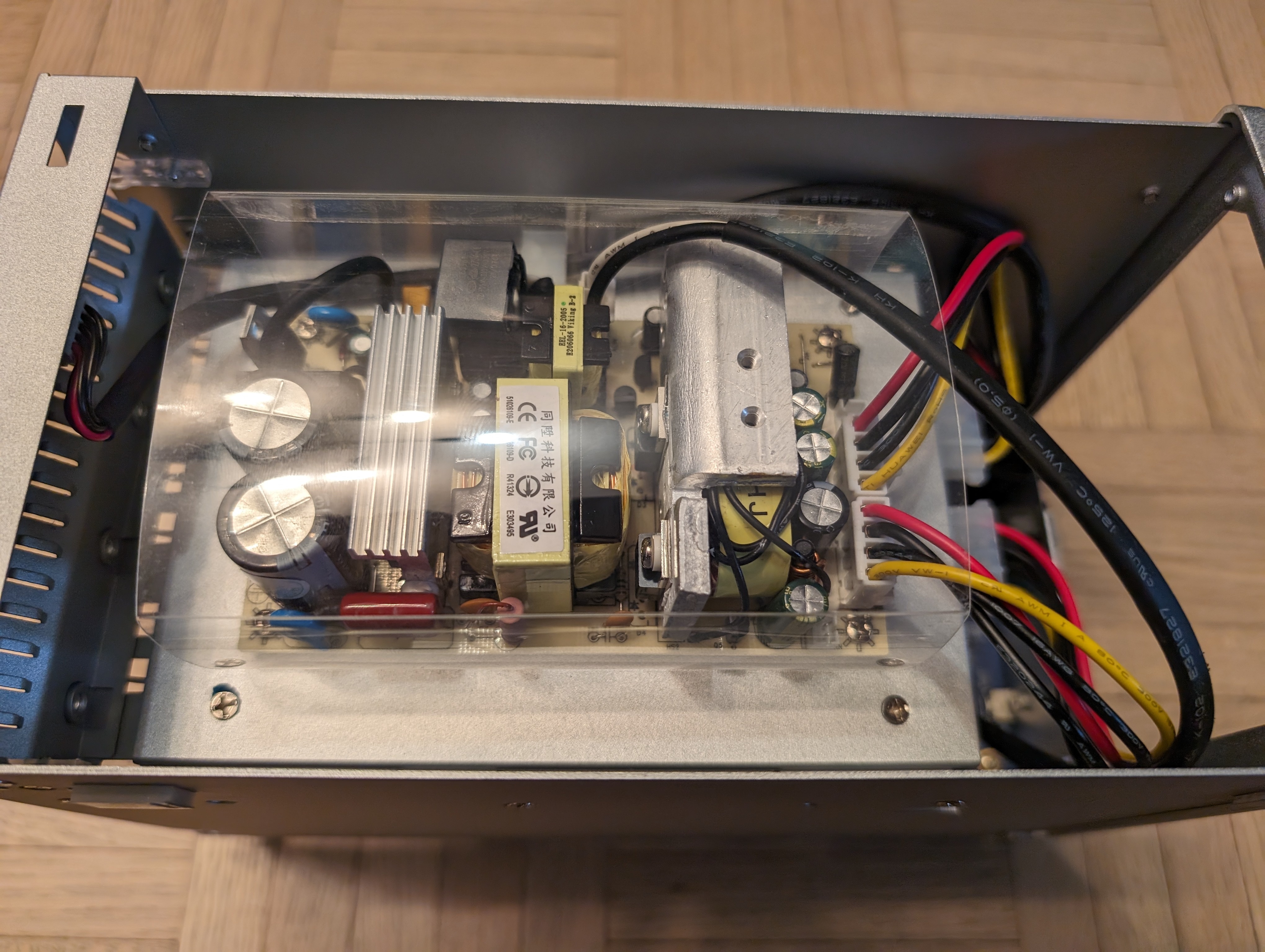
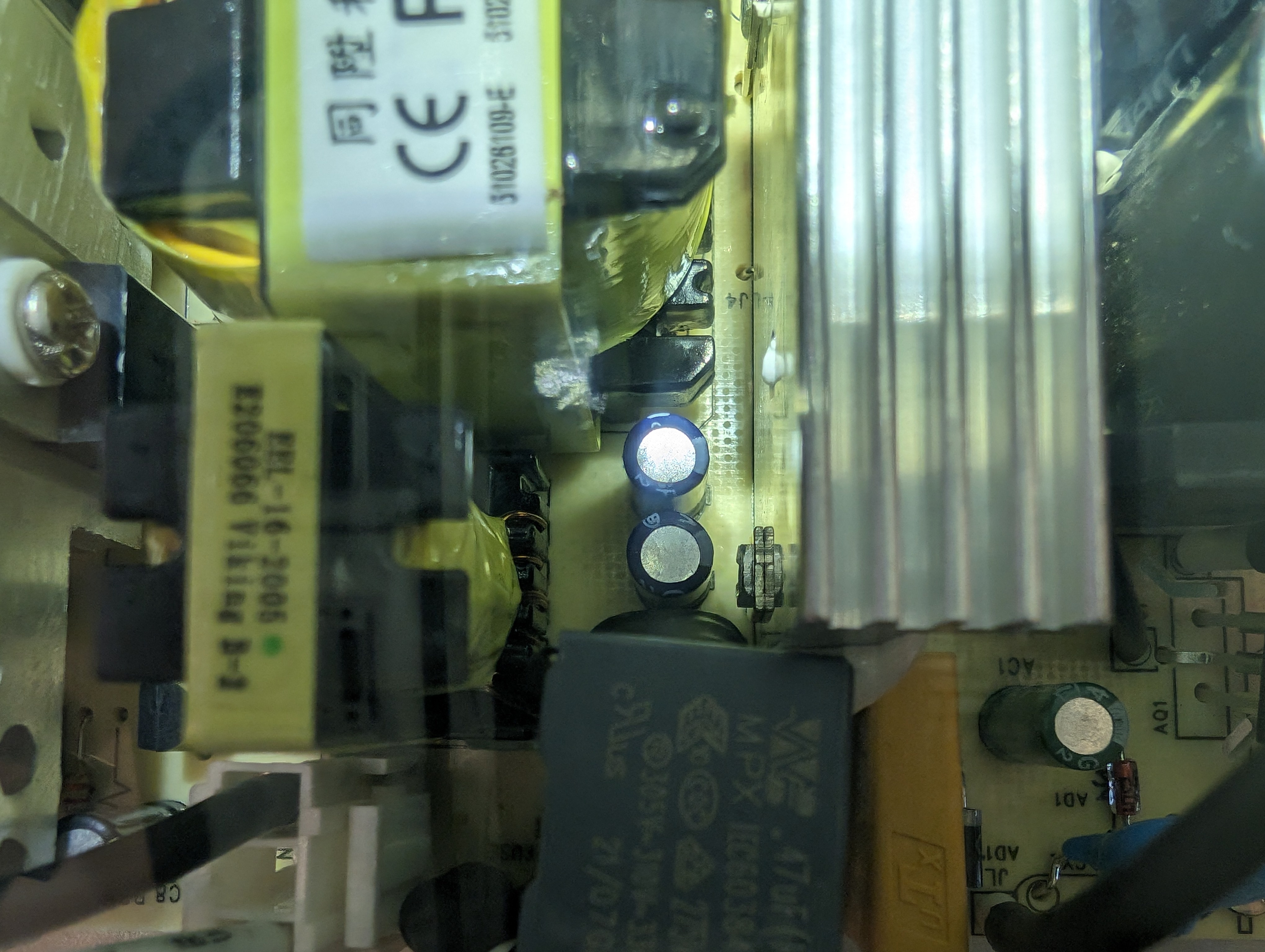
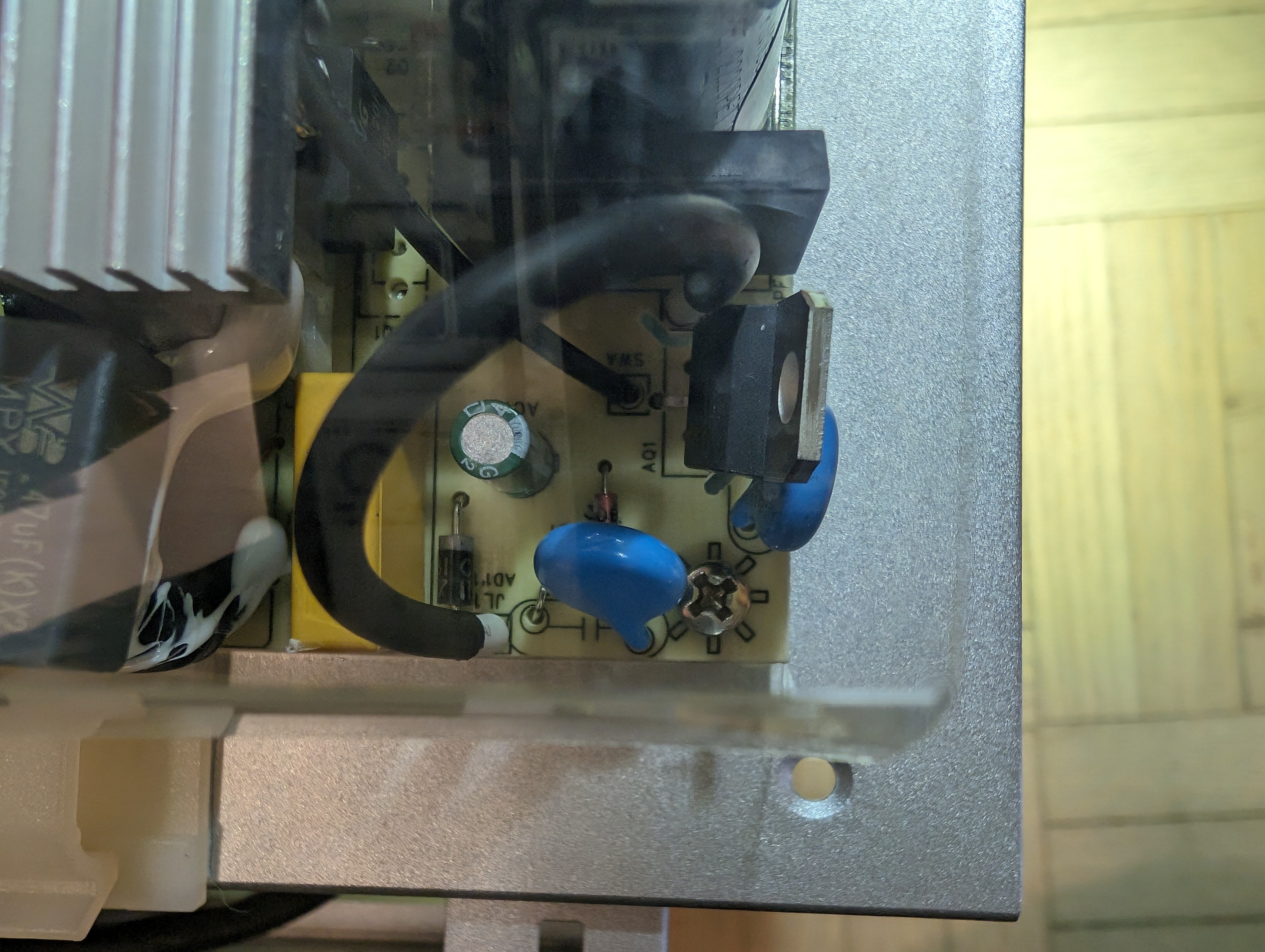
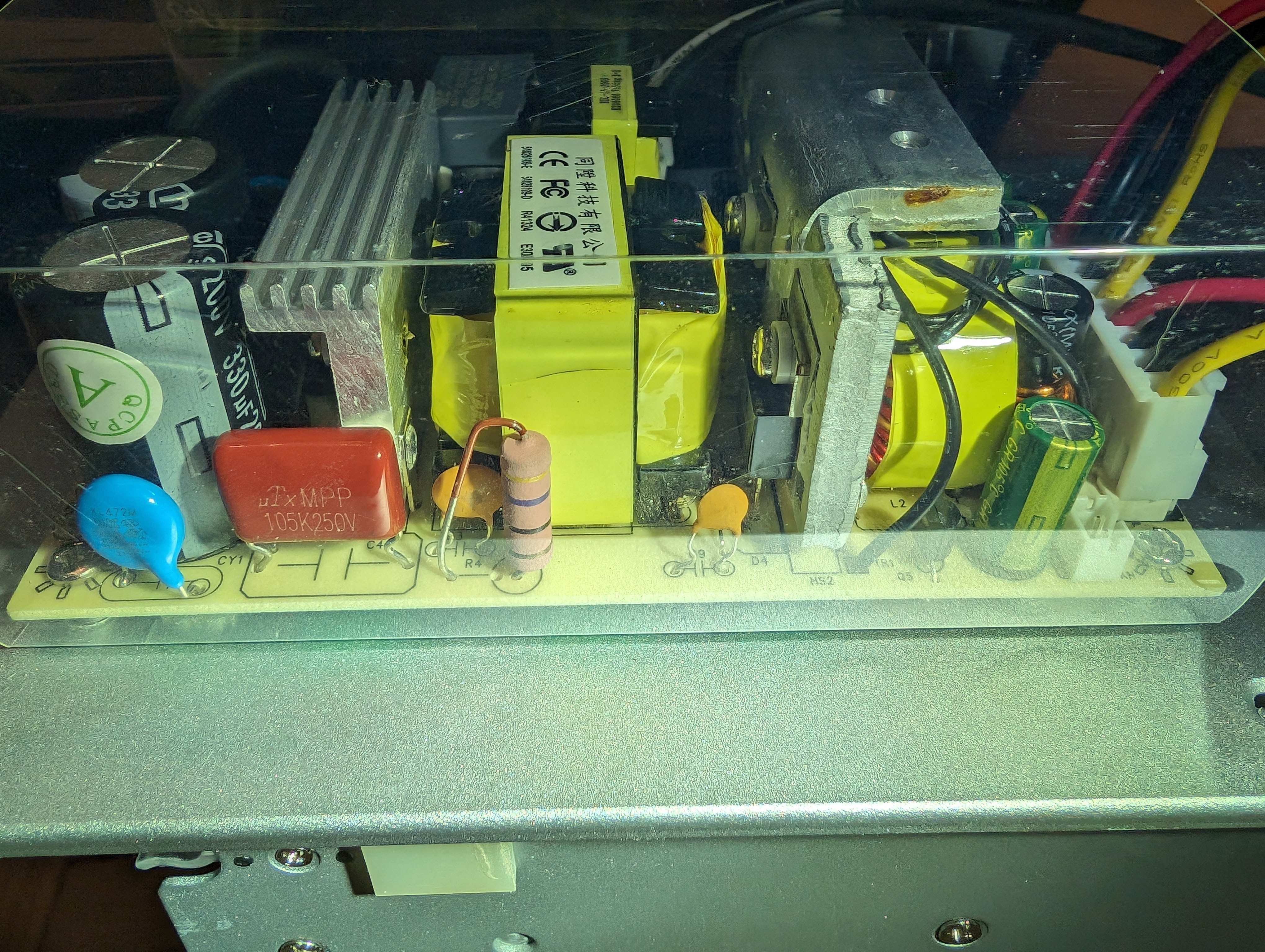
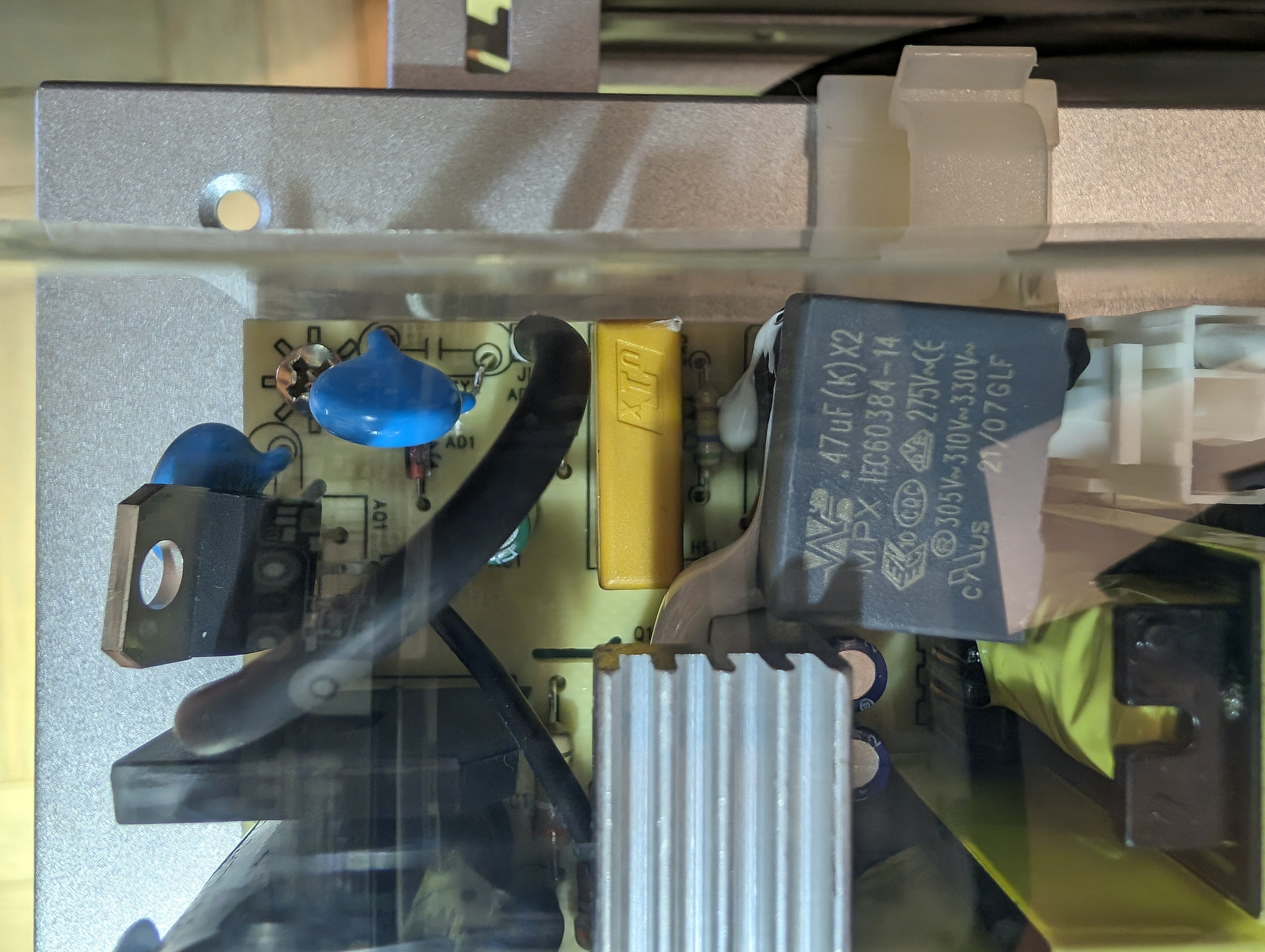
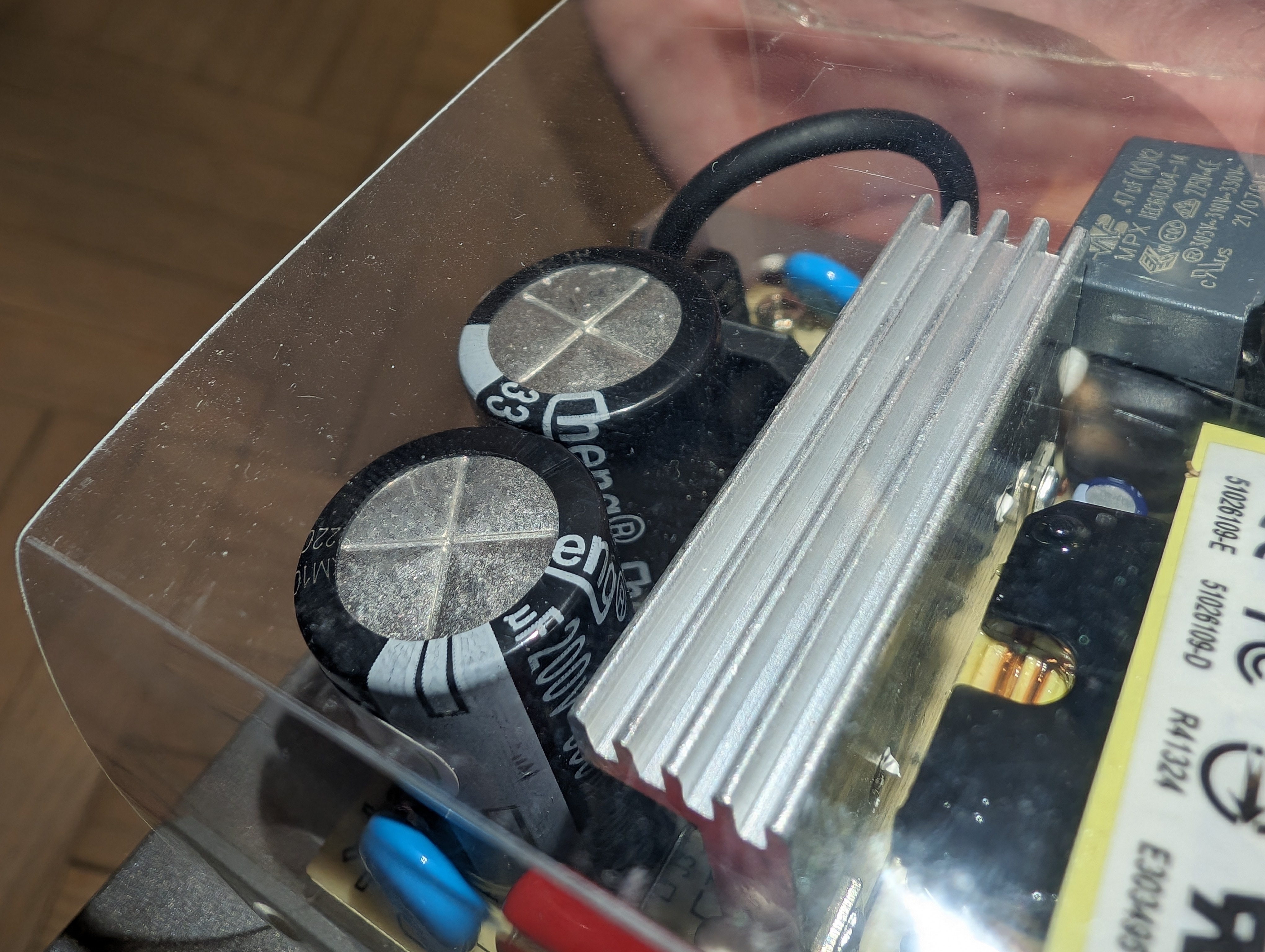
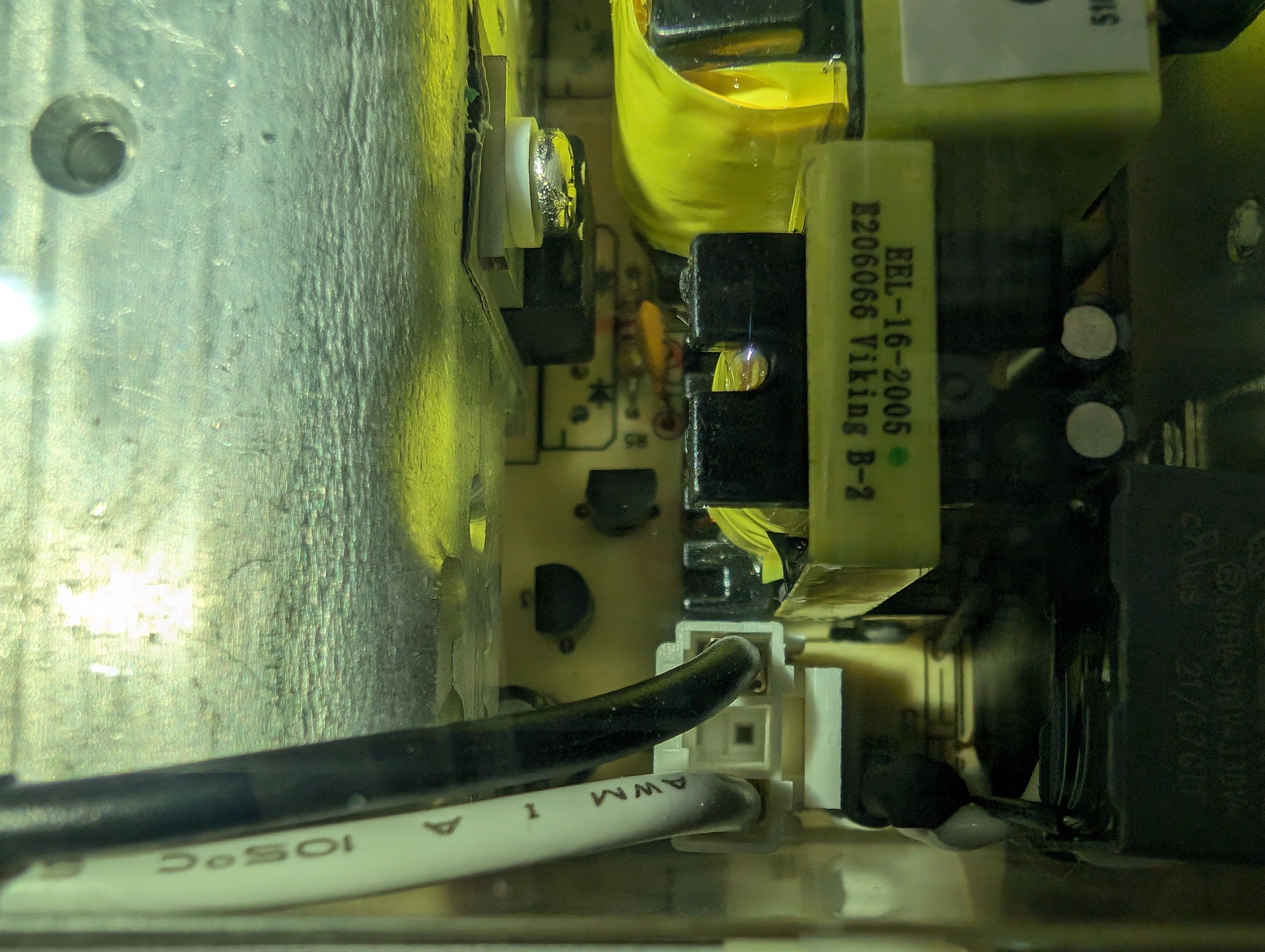
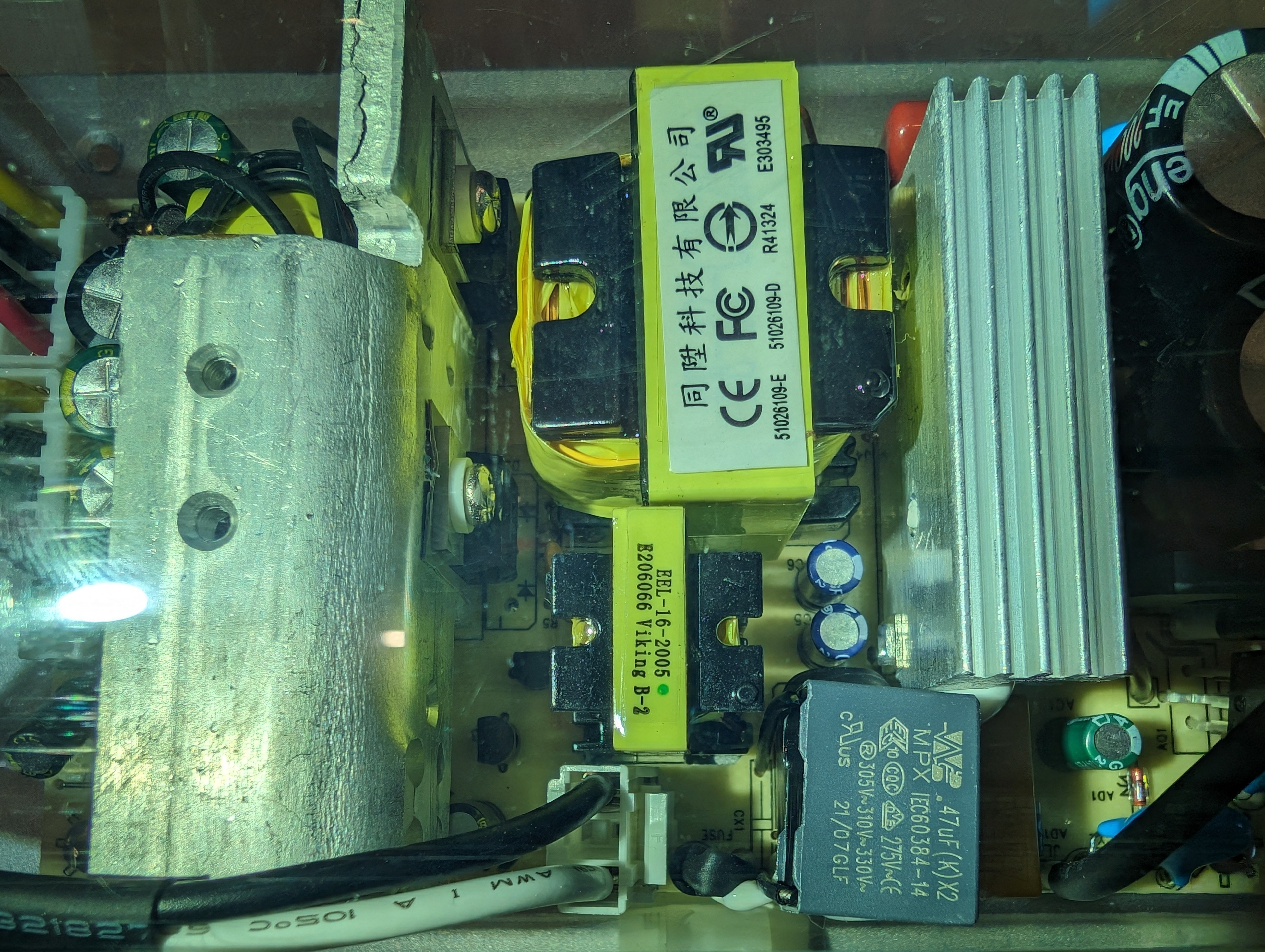
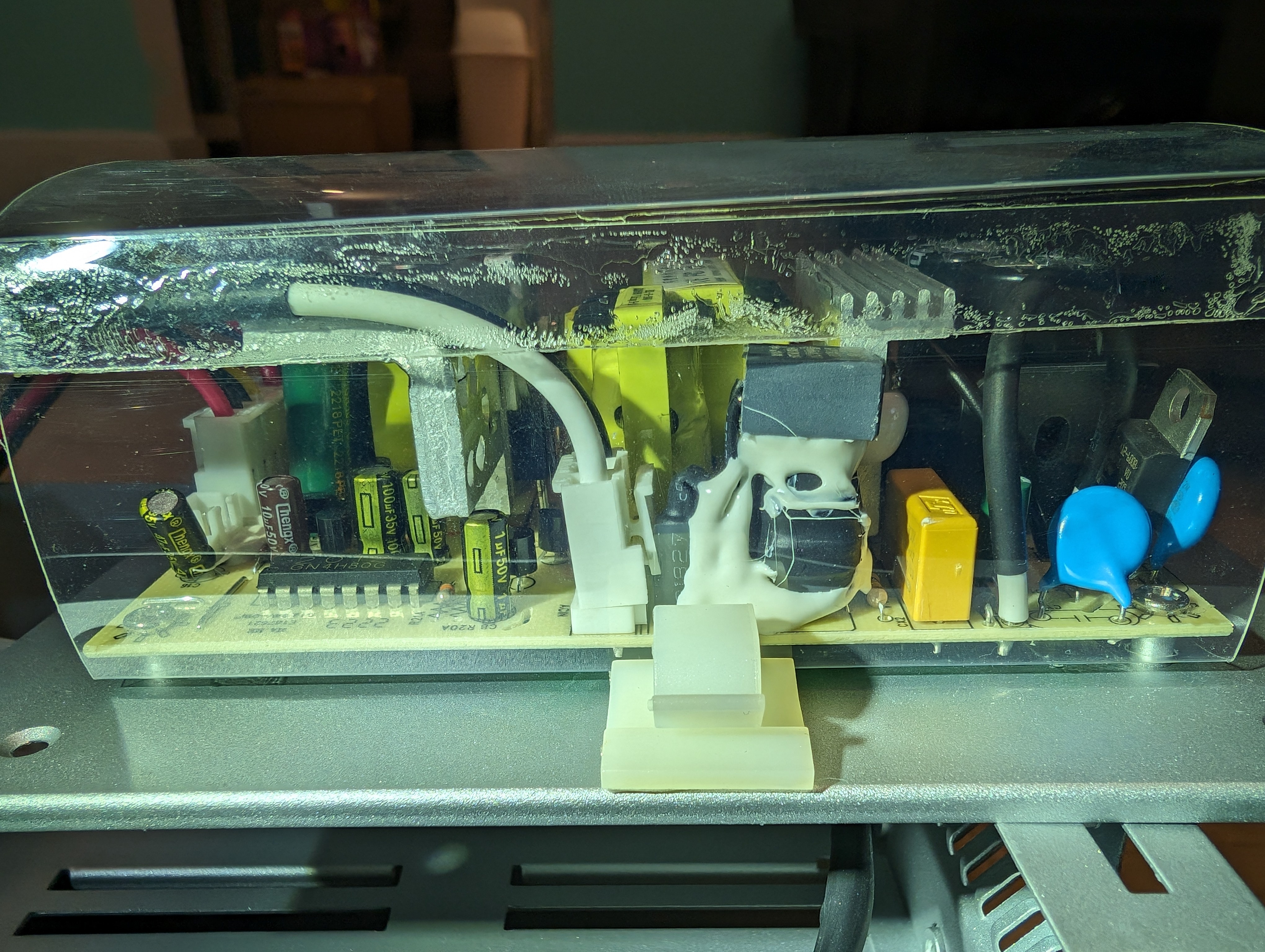
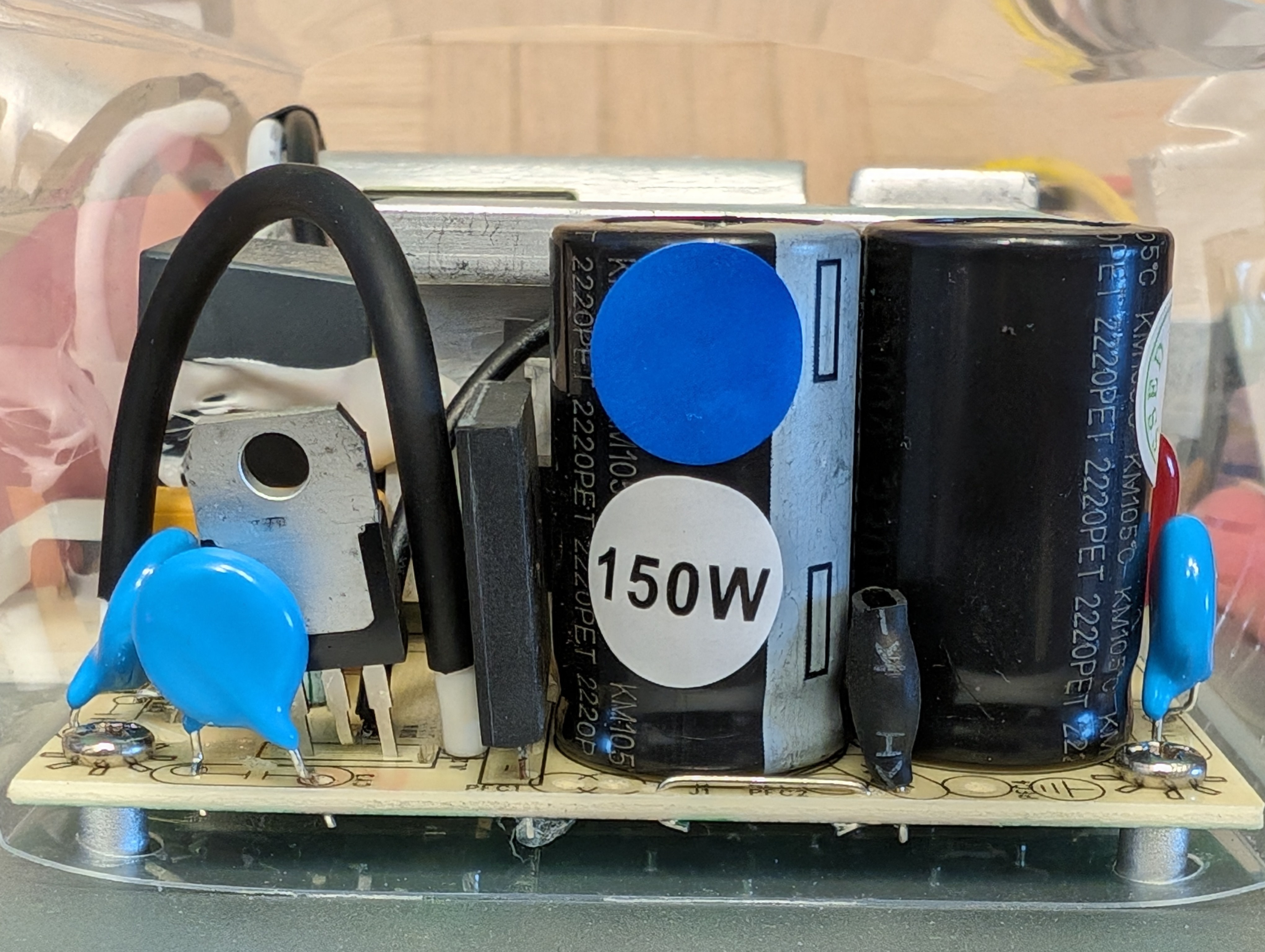
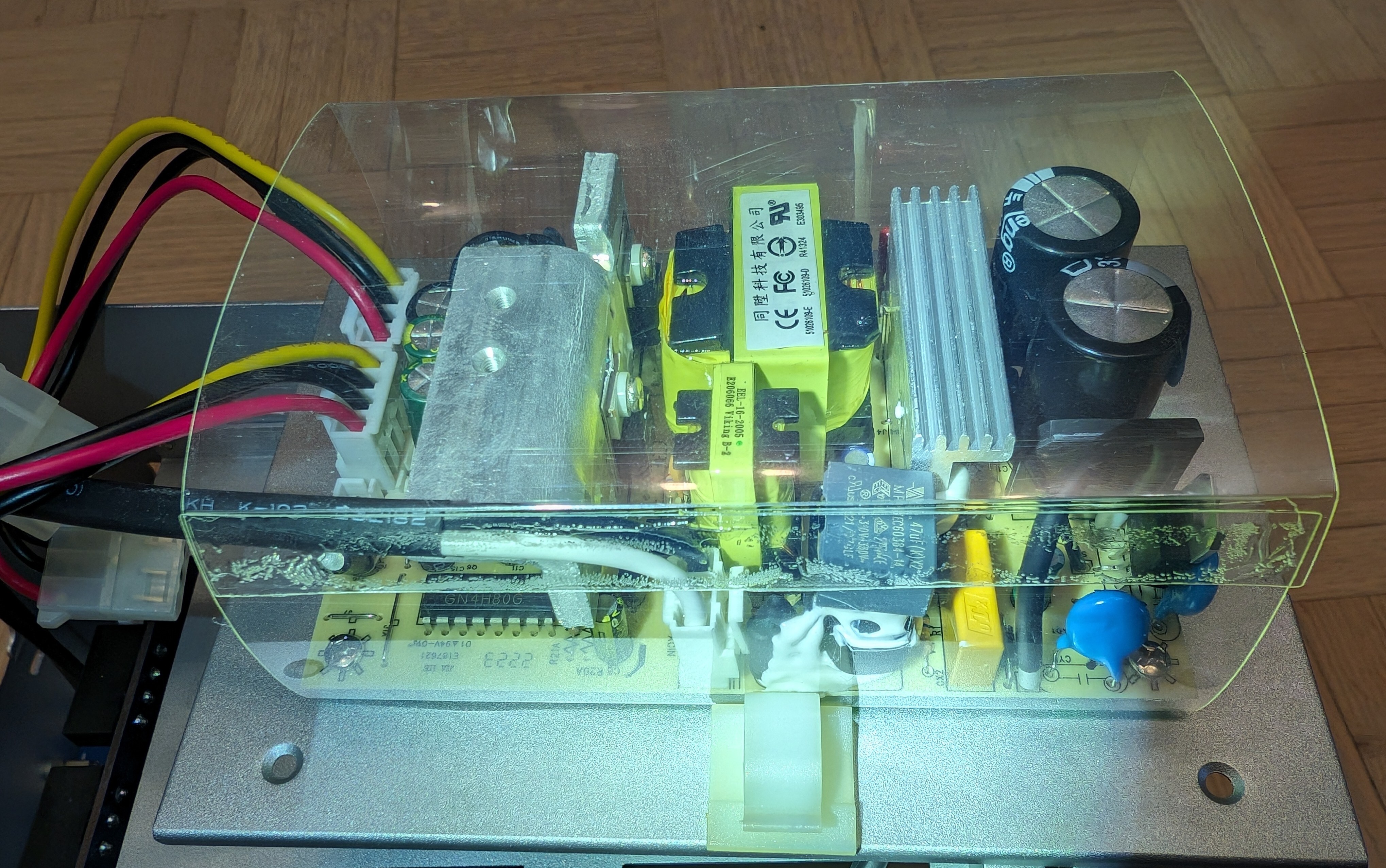
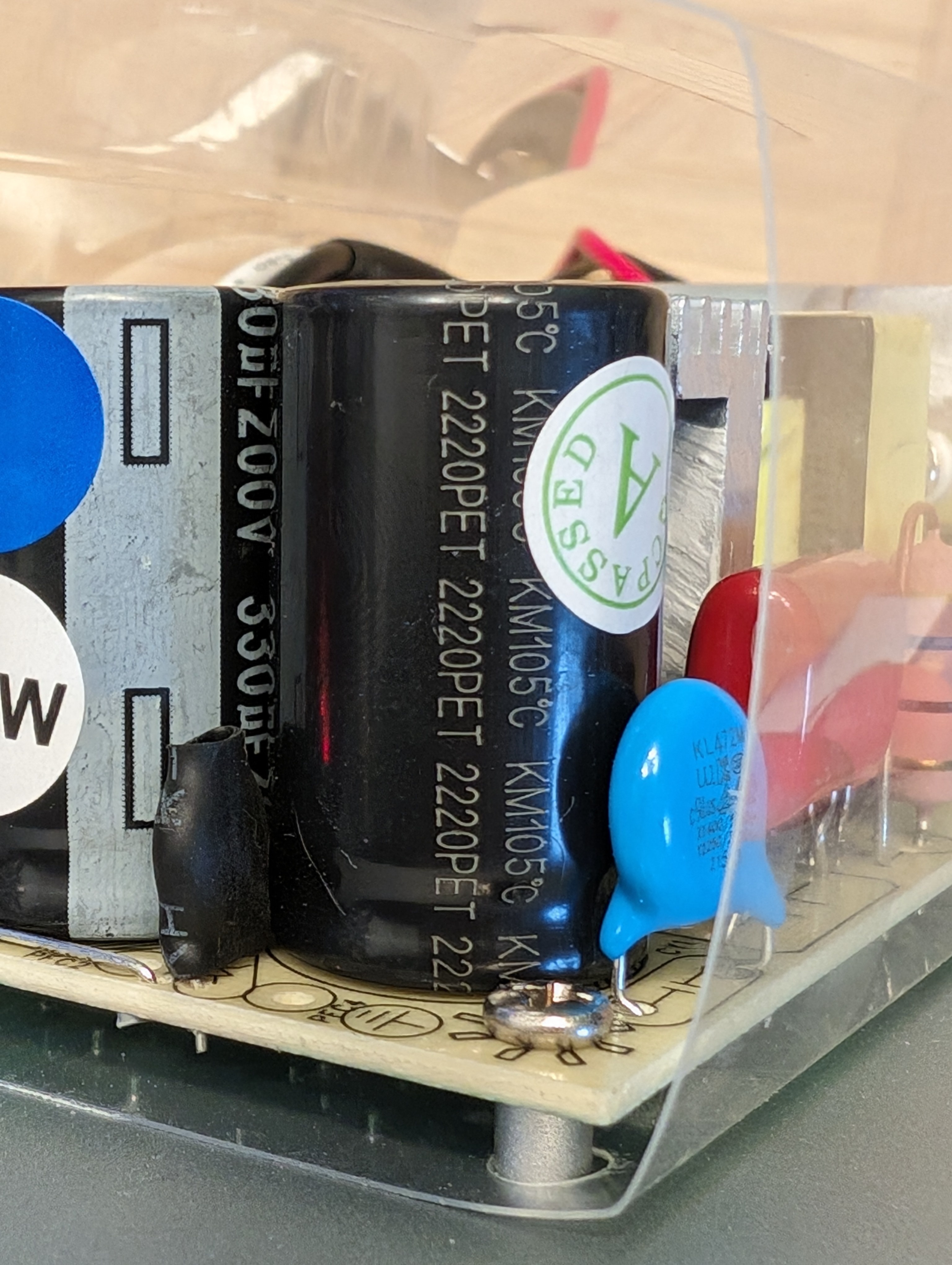


Quite possibly. That said the one I linked is CUI, not a noname. It’s even got an MTBF of 300K hours in its datasheet. There are cheaper ones. 😅 And more expensive ones.